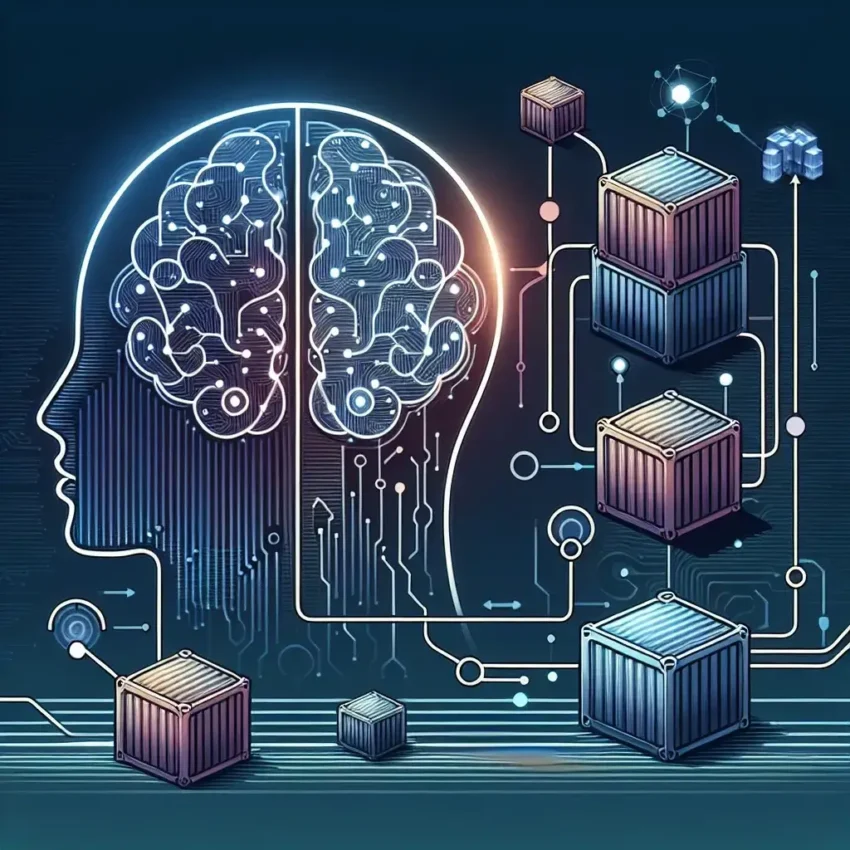Introduction to Docker AI
In the rapidly evolving landscape of software development and deployment, containerization has emerged as a pivotal technology. Docker, a leader in the field, has continuously enhanced its platform to meet the demands of developers and IT operations. With the recent integration of artificial intelligence into its ecosystem, Docker AI is set to redefine container management by providing optimization suggestions that enhance performance and efficiency.
Understanding Container Optimization
Container optimization refers to the process of improving the performance, resource usage, and overall efficiency of containerized applications. As organizations increasingly rely on containers for deploying applications, optimizing these environments becomes critical. Optimization can lead to faster deployment times, reduced resource consumption, and improved application reliability.
The Role of AI in Container Optimization
Artificial intelligence plays a significant role in automating and enhancing the optimization process. By analyzing data from container usage patterns, performance metrics, and system resources, Docker AI can provide actionable insights that help developers make informed decisions. This not only streamlines the workflow but also allows for predictive adjustments based on historical data.
Key Features of Docker AI
- Performance Analysis: Docker AI continuously monitors container performance, identifying bottlenecks and inefficiencies.
- Resource Allocation: The system recommends optimal resource allocation strategies based on application needs and usage patterns.
- Automated Suggestions: Users receive tailored suggestions for improving container setup and configurations.
- Historical Data Utilization: By leveraging historical performance data, Docker AI can predict future optimization opportunities.
Benefits of Using Docker AI for Container Optimization
1. Enhanced Performance
One of the primary benefits of Docker AI is its ability to significantly improve application performance. By providing insights into the most effective configurations and settings, developers can enhance response times and overall throughput.
2. Reduced Costs
Efficient resource management leads to reduced operational costs. Docker AI’s suggestions can help minimize over-provisioning and underutilization of resources, ensuring that organizations only pay for what they need.
3. Improved Reliability
With automated suggestions for optimizing container setups, the likelihood of encountering performance-related issues decreases. This leads to more reliable applications that can handle varying loads seamlessly.
4. Time Savings
Manual optimization can be labor-intensive and time-consuming. Docker AI reduces this burden by automating many aspects of the optimization process, allowing teams to focus on innovation rather than maintenance.
Challenges and Considerations
While the benefits of Docker AI are substantial, there are challenges and considerations that organizations should keep in mind:
1. Learning Curve
Integrating AI into existing workflows may require a learning curve for teams unfamiliar with the technology. Proper training and documentation will be essential for successful adoption.
2. Data Privacy
Utilizing AI involves processing large amounts of data. Organizations must ensure compliance with data privacy regulations and safeguard sensitive information.
3. Dependence on Automated Systems
While automation offers many advantages, over-reliance on AI recommendations without human oversight could lead to unforeseen issues. It’s crucial to strike a balance between AI-driven insights and human expertise.
Future Predictions for Docker AI
The future of Docker AI looks promising, with several potential advancements on the horizon:
1. Deep Learning Integration
Future iterations of Docker AI may incorporate deep learning techniques, allowing for even more sophisticated predictive capabilities and optimization strategies.
2. Enhanced User Interfaces
As user experience becomes a focal point, Docker AI is likely to enhance its interface, providing intuitive dashboards that make insights more accessible to a broader range of users.
3. Broader Ecosystem Integration
Docker AI may expand its integration capabilities with other tools and platforms, creating a more cohesive ecosystem for developers and IT operations.
Real-World Examples
Several organizations have reported significant improvements in their container management processes after adopting Docker AI:
1. E-commerce Platform
An e-commerce company noticed a 30% reduction in server costs after implementing Docker AI’s suggestions for resource allocation and container scaling.
2. Financial Services Firm
A financial services firm enhanced the performance of its trading applications, leading to faster transaction processing times and improved user experience.
Conclusion
Docker AI is not just a tool; it represents a significant step forward in how organizations manage their containerized applications. By providing intelligent optimization suggestions, Docker AI empowers developers and IT professionals to enhance performance, reduce costs, and improve the reliability of their applications. As the technology continues to evolve, its impact on the industry will undoubtedly grow, paving the way for more innovative and efficient solutions in the future.

